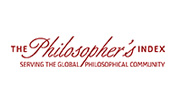New Puzzles about Divine Attributes
Moti
St. John’s University, New York
DOI: https://doi.org/10.24204/ejpr.v5i2.238
Abstract
According to traditional Western theism, God is maximally great (or perfect). more explicitly, God is said to have the following divine attributes: omnipotence, omniscience, and omnibenevolence. In this paper, I present three puzzles about this conception of a maximally great (or perfect) being. The first puzzle about omniscience shows that this divine attribute is incoherent. The second puzzle about omnibenevolence and omnipotence shows that these divine attributes are logically incompatible. The third puzzle about perfect rationality and omnipotence shows that these divine attributes are logically incompatible.
Keywords:






